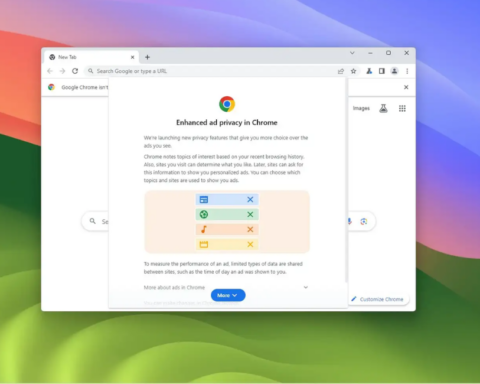Google’s Privacy Sandbox, an initiative aiming to replace third-party cookies with a privacy-centric model, is poised to bring significant changes to the online advertising industry. After numerous discussions and experimental releases, Google has announced plans to transition 1% of Chrome users to Privacy Sandbox and disable third-party cookies for them starting in early 2024, with the broader goal of completely phasing out third-party cookies by the second half of 2024.
The Privacy Sandbox introduces a privacy-conscious approach where users can manage their interests, categorized into cohorts based on similar browsing patterns. With the release of Chrome 115 in July, Google will make Privacy Sandbox’s relevance and measurement application programming interfaces (APIs) widely accessible to all Chrome users, simplifying testing for developers with live traffic. Google does not anticipate significant API changes after this release.
While the deprecation of third-party cookies for 1% of Chrome users may seem incremental, Victor Wong, who leads product for Private Advertising Technology within Privacy Sandbox at Google, emphasized its importance in helping developers evaluate their readiness for the broader changes in late 2024. Wong noted that this plan was developed in consultation with the UK’s Competition and Markets Authority (CMA) to collaboratively test the solution with the industry.

To facilitate developers’ preparedness, Chrome users will be able to simulate third-party cookie deprecation readiness starting in Q4 2023. During this phase, developers can test their solutions by transitioning a configurable percentage of their users to Privacy Sandbox. Wong explained that the coordinated testing in Q4 2023 would prompt the industry to actively experiment and test solutions.
The launch of Chrome 115 in July will mark a pivotal moment for adtech developers, allowing them to initiate large-scale testing of their solutions. Key Privacy Sandbox features, including Protected Audience, Attribution Reporting, and the Topics API, will be finalized at that point.
While users can currently enable Privacy Sandbox trials in Chrome, scaled availability has been limited, prompting requests for broader access for testing. Wong acknowledged the interest in scaling up testing and emphasized the industry’s eagerness to move quickly as the deadlines approach.
Notably, Google has no plans for intermediary steps to scale the number beyond 1% in 2023. Once the decision is made to fully deprecate, Google intends to transition from 1% to 100% without incremental milestones.
The original plan had called for the phasing out of tracking cookies as early as 2022, but Google adjusted the timeline in 2021 and again in 2022 in response to feedback from various stakeholders in the ecosystem. Wong emphasized the significance of this initiative in the history of the web and highlighted the deliberate approach based on input from developers, regulators, policymakers, and advertisers.
Privacy Sandbox has not been without controversy, and other browser vendors are pursuing different approaches to privacy preservation. With the CMA closely monitoring Google’s initiative, the company has committed to guidelines to prevent self-preferencing practices that could provide an advantage over competitors. While competing browser vendors may not be enthusiastic about adopting Privacy Sandbox, the broader implications for the web advertising ecosystem remain uncertain.




